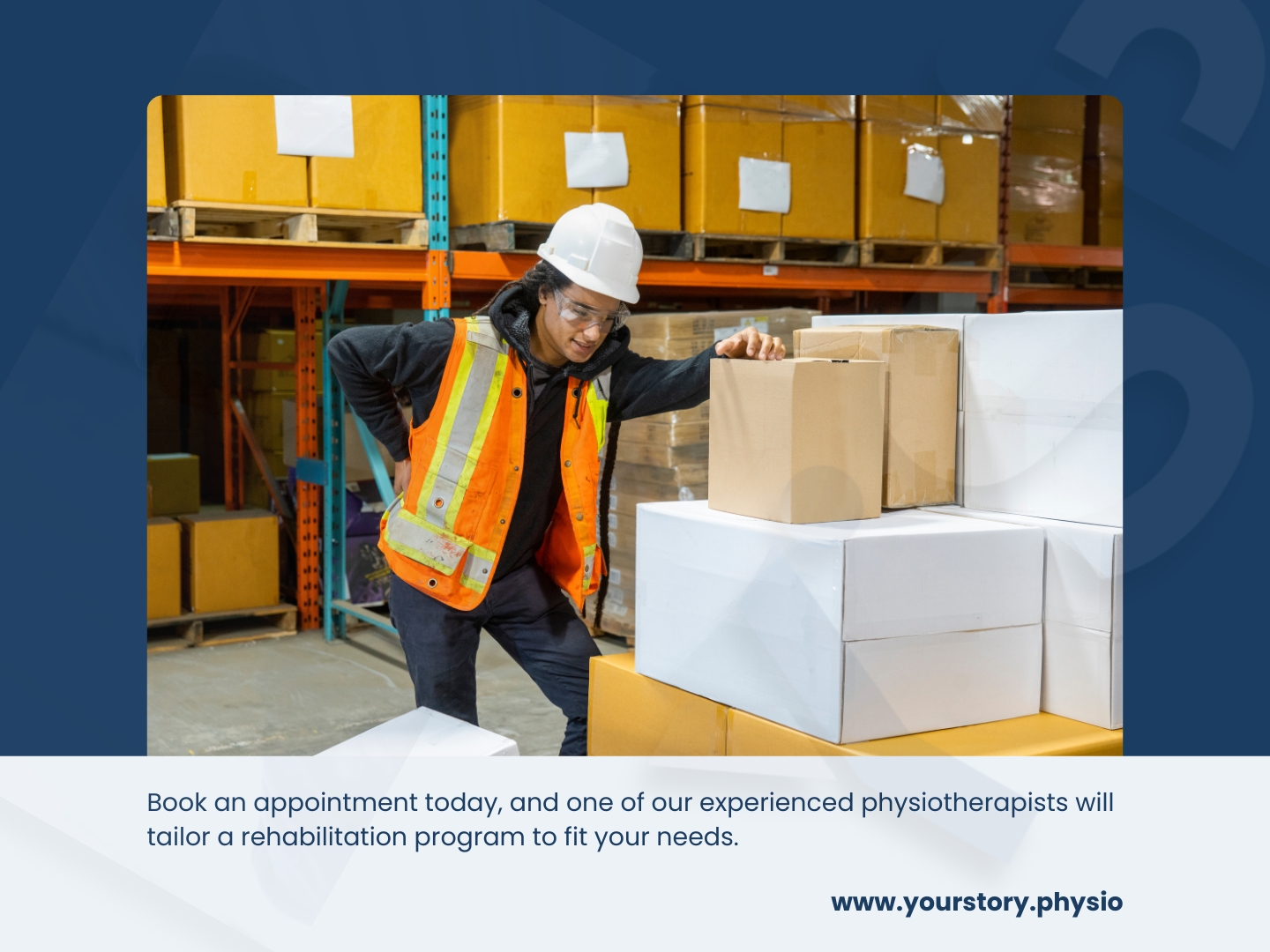Have you ever finished a work shift only to feel that deep, nagging ache in your lower back? Whether you’ve spent the day lifting heavy loads, sitting for hours at a desk, or navigating an awkward workspace, persistent back pain may be a sign of something more specific — facet joint pain.
Facet joint injuries, especially those caused by workplace demands, are a common but often under-recognised source of lower back discomfort. Fortunately, with the right treatment plan and recovery tools, you don’t have to put up with ongoing pain. This blog will walk you through what facet joint pain is, how it can result from work-related activities, and how physiotherapy and modern recovery solutions may support your healing journey.
What Is Facet Joint Pain?
Facet joints are small, stabilising joints located between the vertebrae in your spine. They guide and limit motion, playing a crucial role in maintaining healthy movement patterns. However, when these joints are irritated — due to poor posture, repetitive strain, or injury — they can become inflamed and painful.
In workplace settings, facet joint pain typically arises from:
- Repeated bending, twisting or lifting
- Long periods of sitting with poor posture
- Sudden trauma or slips on-site
This condition can lead to pain in the lower back, often worsening with movement or certain postures. For many workers, it feels like a dull ache that flares up after physical tasks or prolonged periods of stillness.
Common Symptoms of Work-Related Facet Joint Pain
- A localised ache in the lower back or neck
- Pain triggered by leaning back or twisting
- Stiffness or restricted range of motion
- Discomfort after sitting or standing for long periods
- Possible referred pain into the buttocks or upper thighs (without nerve symptoms like tingling)
These symptoms can interfere with your ability to work, exercise, or even rest comfortably — which is why early intervention is key.
What Causes Facet Joint Pain in the Workplace?
Some of the most common workplace-related contributors include:
- Manual handling tasks that involve lifting, carrying or reaching
- Desk-based work with non-ergonomic setups
- Trades and construction roles where twisting and awkward postures are common
- Sudden accidents like slips, trips or impacts on-site
How Physiotherapy Can Help
Facet joint pain often responds well to conservative, structured treatment — especially when guided by a physiotherapist.
Here’s how physiotherapy can help:
1. Comprehensive Assessment
Your physiotherapist will assess spinal mobility, posture, and movement patterns to determine if facet joints are contributing to your pain.
2. Manual Therapy
Techniques such as joint mobilisation, soft tissue release, or gentle stretching may be used to relieve stiffness and promote movement.
3. Targeted Exercise Rehabilitation
Strengthening muscles that support the spine — such as glutes, core, and postural muscles — helps reduce pressure on the facet joints.
4. Postural Re-Education
Improving your body mechanics at work and during daily tasks can help reduce re-injury risk.
5. Workplace Return Planning
Physiotherapists also support safe return-to-work plans, providing graduated activity guidelines and progress monitoring.
The Role of Recovery Technology in Rehab
In addition to hands-on treatment and exercise, new-generation recovery tools can support faster and more comfortable rehabilitation. At our clinic, we’ve made some of the most effective recovery technologies — usually only available to elite athletes — accessible to everyone.
Normatec Compression Boots
These dynamic air compression boots help:
- Increase circulation
- Reduce inflammation
- Alleviate soreness after physical activity
Infrared Sauna
Using infrared heat can help:
- Relax tight muscles
- Promote circulation
- Support stress reduction
Percussion Massage Guns
Helpful for:
- Releasing stubborn trigger points
- Reducing post-workout tension
- Enhancing flexibility over time
These tools are ideal for those experiencing persistent lower back pain or needing support between physiotherapy sessions.
More Than Just Treatment — Complete Rehabilitation
We believe rehab should be more than a massage or a generic exercise print-out. That’s why our clinic is fitted with a specialised rehab gym, including a Smith Machine and other strength-based equipment, giving patients the space and tools to rebuild safely.
Whether you’re recovering from a workplace accident or managing a chronic issue, our integrated model means everything — treatment, rehab, and recovery — happens under one roof.
Our promise:
✔ A team that understands workplace injuries
✔ Rehab facilities that feel empowering — not clinical
✔ Access to recovery tools that support real progress

Final Thoughts
Facet joint pain from workplace injuries is more common than you think — but it doesn’t have to become a long-term issue. With early intervention, structured physiotherapy, and access to modern recovery tools, you can feel stronger, move better, and return to what you love doing.
At our WorkCover Physio clinic, we combine expert care with athlete-grade recovery tools and full rehab facilities to guide you every step of the way.
Book an appointment today, and one of our experienced workcover physiotherapists will tailor a rehabilitation program to fit your needs.




